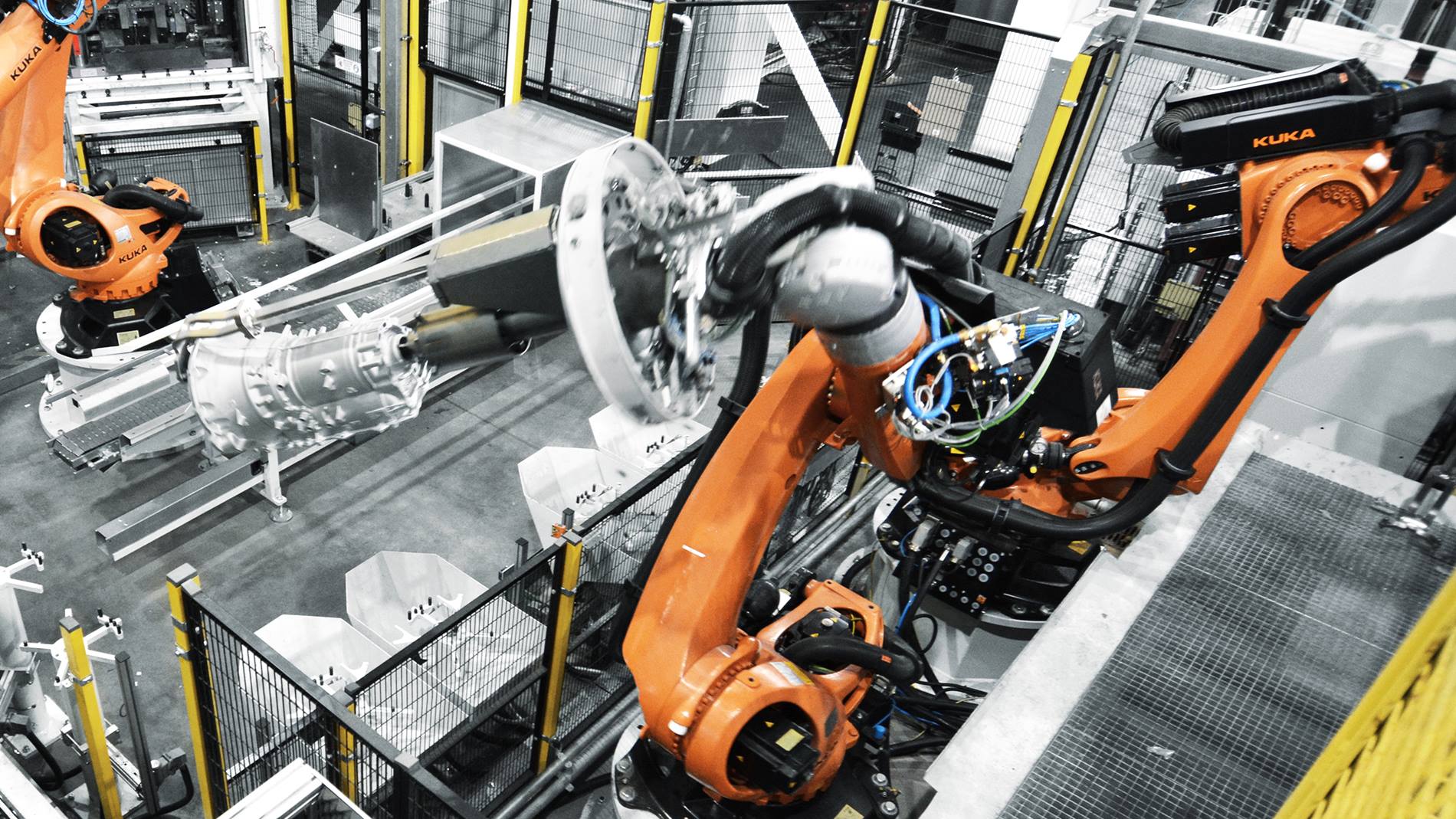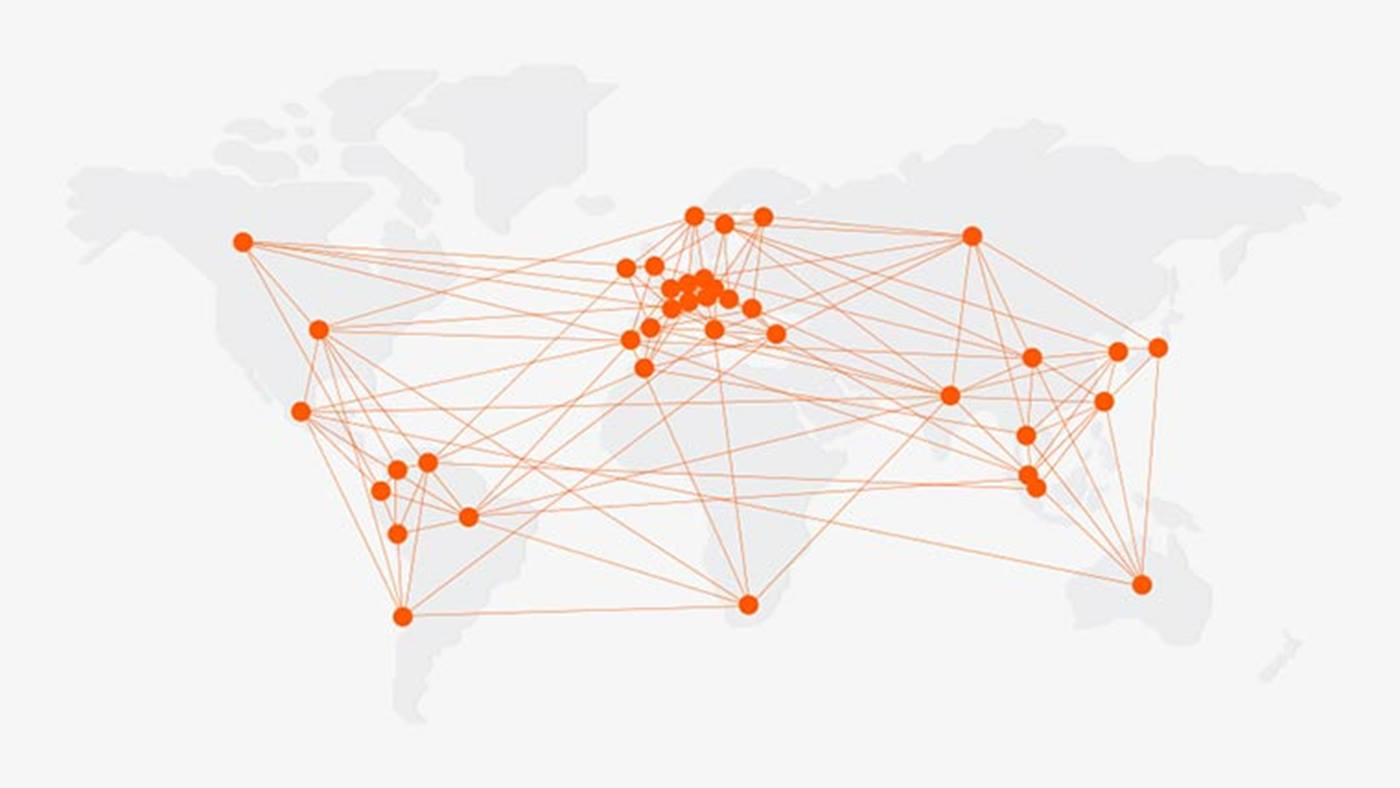The initial situation
Automatic gearboxes are an increasingly popular option in cars for transmitting the required power, speed and torque to the wheels. This currently also applies in particular to SUVs. For this reason, KSM Castings, a customer of KUKA Industries, invested in a new dual casting line that is perfectly meshed, offers short cycle times and produces transmission housings for automotive manufacturers in the USA. KSM not only produces aluminum and magnesium transmission components, but also performs complex, mechanical machining processes.
The task
Automatic transmission housings for SUVs have to be robust. This is indicated by the shot weight of over 20 kg of aluminum. Our customer’s demand for corresponding transmissions led to the line being equipped with two casting machines. But that’s not all. Virtually all of the peripheral production equipment is also duplicated. This was the only way to ensure the very short cycle time required.
The solution
KUKA configured each robot and integrated it into the production line with a double gripper for handling the necessary steel casting inserts and the aluminum castings to be removed. Following casting, the robot removes the transmission housing – the temperature of which is still over 350 °C – for a visual inspection. The parts then undergo coarse deburring, after which a 2D data matrix code is applied so that each individual housing can be identified.
In the dual system, a robot alternately picks up the housings arriving on the two conveyors and transfers them to the fine deburring presses from KUKA Industries. The machining of the cast part is completed in a sawing and milling station in a finishing cell. At the end of the process, defect-free housings are placed on corresponding pallets for automatic onward transportation. This notwithstanding, it is possible to offload faulty (NOK) parts after each individual machining step at any point in the system.


